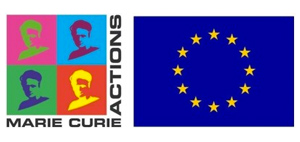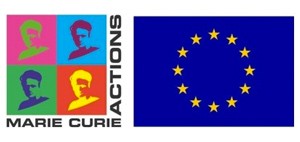
Inexpensive, renewable energy storage is vital for the future of humanity. Generating H2 via water splitting in proton exchange membrane (PEM) electrolysis is a promising route for renewable fuel production. Wide-spread use of PEM electrolysis is limited by the high cost of the electrocatalysts which are composed of rare-earth metals such as Ir, Ru, and Pt (the catalysts being ~40% of the fabrication cost of PEM cells). Renewable Energy through New Electrolysis catalysts for Water splitting (RENEW) aims to develop, characterize, and mechanistically understand water oxidation catalysts
(WOCatalysts) based on earth-abundant metals embedded in planar and nanostructured electrodes to replace rare-earth metals in PEM electrolysis. The specific goals of RENEW are (i) fabricate planar electrode/catalysts composed earth abundant metals such as Co, Fe, and Ni and based on recent advances in stabilizing these catalyts; (ii) determine the intrinsic activity, electrocatalytic current density, and lifetime of the electrode/catalyst assemblies; (iii) develop an understanding of the relationship between the electrode substrate and the stability and activity of the WOCatalysts; and (iv)
fabricate nano-structured catalyst/electrode assemblies based on the most promising results of specific goals i-iii.
The results of this project have the potential to greatly reduce the cost of H2 generated from renewable energy sources such as solar, wind, or geothermal and thereby transform the European and global energy sectors, which aligns with the Horizon 2020 work programme of “Secure, Clean and Efficient Energy”. Throughout this project I will learn new techniques relevant to industrial catalysis, develop my skills as an independent researcher and mentor, and expand my network to include international collaborations and relationships as I transition to an established researcher.
RENEW
Fellow name: Scott Folkmann

MSCA IF